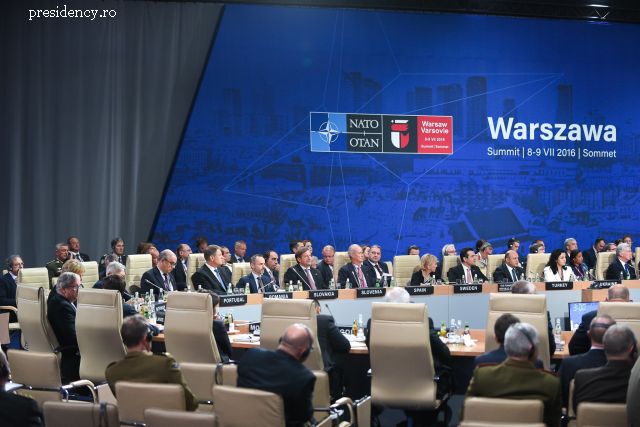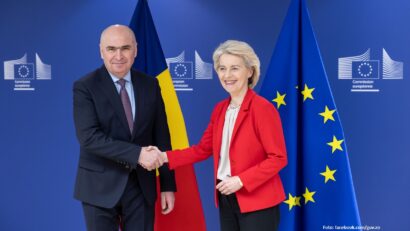In the wake of the NATO Summit
The NATO Summit in Warsaw was a success for Romania, says the country's president Klaus Iohannis.

Bogdan Matei, 11.07.2016, 12:13
Western powers
have reported a symbolic victory, political pundits argue, by hosting the NATO
summit in Poland, the very place where the former USSR had forced its satellite
states to formally become its allies during the Cold War by signing the Warsaw
Pact. Today, from Estonia to Bulgaria, former communist countries in Eastern
and Central Europe are part of the free world, members of the European Union
and the North Atlantic Treaty Organisation. Their concern with Moscow’s resurgence
is still very much alive though. The 28 NATO member states stand united on
Russia, which neither poses a necessary threat, nor is a strategic partner,
NATO Secretary General Jens Stoltenberg said in Warsaw. He added that the
principles underlying NATO’s relations with Moscow are complementary: strong
defence and constructive dialogue.
As part of its
defensive system, NATO decided to deploy four multinational battalions to
Poland and the Baltic States, as well as to turn a Romanian brigade into a NATO
multinational structure. The Allies have also decided to transfer control and
coordination of the anti-ballistic missile facility in Deveselu, southern
Romania, from the United States to NATO. Romania is thus consolidating its
position as a NATO member state and an important regional actor contributing to
security and stability in an area facing multiple risks, Romanian President
Klaus Iohannis said after the summit.
The Romanian
president also argued in favour of sustained increased NATO assistance to
former Soviet countries aspiring to join the EU and NATO, such as Moldova,
Ukraine and Georgia. Klaus Iohannis has warned that the crises in Syria, Iraq
and Libya, on NATO’s southern borders, are posing many challenges, and that the
Islamic State terrorist organisation poses a real threat to global security.
On the sidelines
of the Summit, NATO and the European Union have for the first time signed
official cooperation agreements in such fields as migration, hybrid threats and
cyber security. The so-called Warsaw Declaration, signed by all participant
countries, also includes references to air and maritime security in the Black
Sea region, a field that might see important decisions being taken at the
forthcoming NATO Defence meeting in October. These may help address what the
Bucharest media has labelled as the failure of President Klaus Iohannis,
whose proposal to create a NATO fleet in the Black Sea was not met with much
enthusiasm by neighbouring Bulgaria and Romania’s Western partners. The idea
itself remains topical, analysts have pointed out, given that the Crimean
Peninsula, which was annexed by Russia two years ago, is only a few hundred
kilometres away from Romania, Bulgaria and Turkey.






























